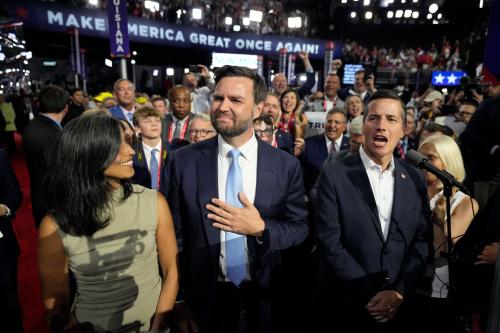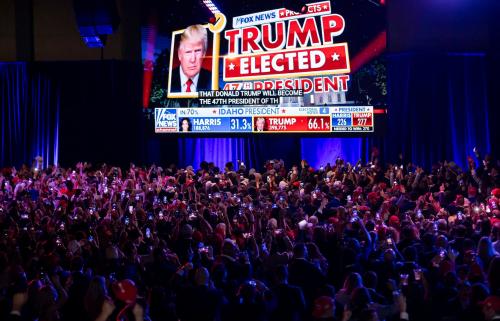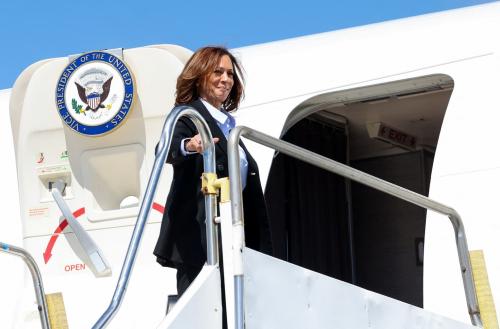President Biden surprised the world by announcing his withdrawal from his reelection campaign and throwing his support to his vice president, Kamala Harris. Although pressure had been building on him since his woeful debate performance against Donald Trump on June 27, he and his senior campaign aides had been insisting that he had no intention of leaving the race. It is far too early to know which considerations proved decisive in changing his mind.
We do know that most Democrats, including many of the president’s loyal supporters, felt relieved when he made his announcement. Biden’s approval rating was mired below 40%, and he was trailing by expanding margins in all the states that will determine the outcome of the election. As his support dwindled, the battlefield expanded. States such as Minnesota, Virginia, and New Hampshire, long regarded as safely Democratic, suddenly became competitive. Many Democratic elected officials feared that if Biden lost badly, Republicans would keep their majority in the House and take control of the Senate, allowing Trump to implement his program without effective resistance from Congress.
What comes next? Many senior Democrats, including former House Speaker Nancy Pelosi, are urging an open process to choose Biden’s replacement, and indications are that party leaders will do so. The question is whether any of the leading contenders will step forward to challenge Vice President Harris. There is no evidence that anyone will, and they have good reasons not to do so. Contesting her nomination would antagonize her supporters, diminishing challengers’ support in future presidential races. Besides, they would start from scratch with no money and modest name recognition. As this article goes to press, the most prominent alternatives to Harris have not taken themselves out of the race or endorsed her, but it’s a good bet that many will in coming days.
What are Harris’s prospects in November against Donald Trump? On the one hand, her nomination would take the age issue off the table—and even give her a chance to use it against the former president. Her nomination might well reinvigorate support from young people and non-white voters, and her vigorous denunciation of the Dobbs decision overturning Roe v. Wade and her advocacy for the pro-choice cause could lead moderate suburban women to reconsider their presidential choice. On the other hand, she will have no choice but to defend the record of the Biden-Harris administration, important aspects of which voters don’t like, and she will be forced to defend her role in the administration’s handling of immigration, especially at the southern border. While some Democrats yearn for a candidate who represents a cleaner break with the past, they may not have one to support.
Even if Vice President Harris chooses, as expected, a white moderate governor as her running mate, her candidacy will underscore the widening demographic gap between the Democratic and Republican coalitions. As Trump Republicans bet on expanding their outreach to the working class, Harris will depend on a more educated and upscale portion of the electorate. She will have substantial appeal to Black voters (especially women) and white liberals, but her prospects of reversing the Democrats’ declining support among Hispanics are at best uncertain. As a campaigner, she must show that she has learned from the embarrassing collapse of her run for the Democratic nomination in 2020.
Overall, she must convince undecided Americans that she has the clarity, knowledge, and gravitas needed to be an effective president—in foreign policy and defense as well as domestic policy. If the people don’t feel comfortable imagining her in the Oval Office, they won’t vote for her, and Donald Trump will surf a working-class populist wave back to the White House.
The Brookings Institution is committed to quality, independence, and impact.
We are supported by a diverse array of funders. In line with our values and policies, each Brookings publication represents the sole views of its author(s).








Commentary
Can Kamala Harris convince undecided Americans to vote for her?
July 21, 2024